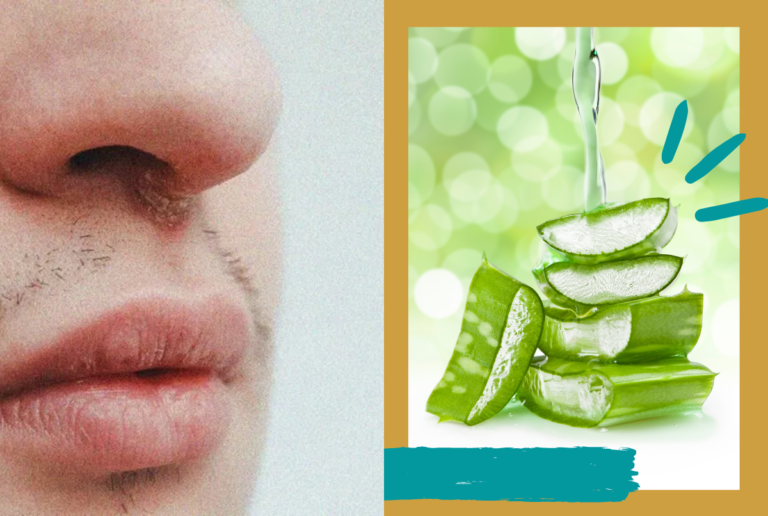What Probiotics To Take While You’re On Antibiotics
“As the bacterial gut thrives, so does the human.”

As several renowned scientists have affirmed this fact, one can assume that this statement is not an exaggeration. The human digestive system has a complex gut microbiome that is home to all types of healthy bacteria. Many of these bacteria in your gut work with each other or depend on one another to keep the digestive tract in the best possible shape.
A few of these bacteria in the gut microflora can make one ill, and thus antibiotic treatment is prescribed to eliminate bad bacteria. The problem arises when prescribed antibiotics eliminate the beneficial live microorganisms along with removing the bacterial infection. Needless to say, this disrupts the gut microbiome, and the imbalance can have various side effects.
One solution to tackle this issue is to take probiotics with antibiotics to restore the population of beneficial bacteria in the gut. Let’s find out more about antibiotic use and probiotic supplementation-
Effects On Gut Health Due To Antibiotics
Along with other factors like poor diet and external infection via food, antibiotic use can severely disrupt the gut system. Since the antibiotic treatment is non-selective, these strong medicines deplete the digestive tract of its regular beneficial microbes and cause issues like clostridium difficile infection.
1. C.diff Infection
Clostridium difficile infection causes inflammation of the colon, diarrhea, and general discomfort to the person taking antibiotics. One research found that the risk of developing c.diff increases 7 to 10-fold after a month of consuming antibiotics. The risk of infection declines three months after the antibiotic medication course is over, but it is not eliminated completely. [1]
2. Antibiotic Resistance
Sometimes, harmful bacteria develop resistance to antibiotic therapy, which renders the drugs useless. Antibiotic resistance occurs when the bacteria are no longer killed as a direct result of treatment, thus requiring more potent drugs to clear them out. This is problematic, to say the least because stronger antibiotic doses will further impact the gut flora and increase digestive issues like abdominal pain.
This vicious cycle is such that the more antibiotics exposed to the system, the higher is the chance of developing resistance to them. To avoid this problem, take antibiotics sparingly or only when necessary. One should definitely avoid them when suffering a viral infection like the common cold since antibiotics will only kill bacteria (not viruses).
3. Dysbiosis
Antibiotic treatment can cause dysbiosis, which is an unfavorable ratio of the good and bad bacteria in the gut. When this condition occurs, people usually complain of symptoms like diarrhea, constipation, bloating, excessive gas, and reflux.
Once the gut ecosystem is altered, the regular healthy function of the digestive system, including digestion, immune response, and nutrient production, are hindered. Some clinical trials suggested that the negative effects of taking antibiotics can last up to two years. [2]
Read Also:
Will Probiotic Supplements Improve Gut Health While Taking Antibiotics?
Probiotic supplements contain live microbes that have a beneficial impact on various health issues like irritable bowel syndrome, cardiovascular diseases, metabolic illnesses, diabetes, and immune response. Some studies also reveal that probiotics can have a positive effect on mental health and ease symptoms of depression and anxiety.
As we discussed earlier, antibiotic treatment can cause antibiotic-associated diarrhea, and children are especially susceptible to this. But studies show that intake of a probiotic supplement or food can increase the population of beneficial bacteria and restore the balance in gut microbiota.
A review of 23 clinical studies showed that consumption of probiotics with antibiotic medication lowered the risk of diarrhea by 50% in children. [3] Another study showed that ingesting probiotics can restore the microflora to its original state after going through the side effects of antibiotics.[4]
Taking Probiotics And Antibiotics Together
One question that bothers some people about consuming antibiotics and probiotics is whether they can be taken together. After all, the antibiotic effects of the drug might end up killing the live beneficial bacteria of probiotics.
Well, that might be true to some extent, but it is also important to note the results of randomized clinical trials conducted by several researchers. Essentially, studies have found that adding probiotic supplements to antibiotic therapy may reduce the incidence (and severity) of antibiotic-associated diarrhea. [5]
Antibiotics play a role in the overgrowth of yeast and may cause yeast infections. Consequently, it was found that certain probiotics, if supplemented with antibiotics, can control yeast growth.
What Probiotics Should You Take While On Antibiotics?
Since consuming probiotics alongside antibiotics balances the bacteria in your gut, try including probiotic bacteria strains the next time you need antibiotics. These can be obtained by adding one of many probiotic supplements or fermented foods to the diet-
A. Probiotic Supplements
1. Lactobacillus Rhamnosus GG
This probiotic supplement increases the number of beneficial bacteria in the gut microbiome and could also effectively reduce antibiotic-associated diarrhea.[6] Since these particular strains need not be refrigerated, you can buy them from stores or online and consume them when needed.
2. Saccharomyces Boulardii Biocodex
This is another probiotic strain that prevents the effects of c.diff infection when antibiotics are consumed in excess. In fact, unlike other probiotic strains, this one might even help those with recurring episodes of c.diff infection. [7]
Similar to the previous strain, this option too does not need refrigeration to survive, and its products are easily available in stores.
3. Visbiome
This multi-strain probiotic also contributes to healthy gut bacteria and can reduce the harmful effects of antibiotics. This option does require refrigeration; thus, you may have to look for a reliable source to buy it. If these good bacteria are not maintained at a regular temperature, they might die before they reach the gut.
This should be avoided because probiotics are effective as long as the microorganisms are still living when they enter the gut.
Some strains like lactobacillus rhamnosus rosell-11, lactobacillus acidophilus rosell-52, and Bifidobacterium lactis lafti B94 survive well when taken with antibiotic medication. Usually, taking one capsule of any one of these probiotic strains with the medicine should be good enough.
B. Probiotic Foods
Fermented foods like yogurt, sauerkraut, kimchi, kombucha, kefir, or even pickles have live microbes like lactobacilli that can be used to replace gut bacteria. Lactobacilli is one species that successfully restores gut flora and has beneficial probiotic effects on the system.
Thus, when taking probiotics with antibiotics is not possible, try buying probiotic-rich foods or making your own at home. Increasing the number of good bacteria also keeps one safe from bacterial infections in the future and keeps the gut healthy.
To improve the effects of probiotics, add some fiber to the diet for extra benefits. While fiber is not used by the body, it works as a prebiotic for probiotic organisms. This means that the presence of fiber stimulates the growth of these beneficial bacteria.
Best Time To Take Probiotics While On Antibiotics
Now that we know how important it is to take probiotics with antibiotics, it is crucial to consume them at the right time for the best results. Any probiotic supplement is best consumed in the morning after breakfast. As discussed, some strains can be taken with antibiotic medicine, but there may be some exceptions.
Depending on the strain, there may be a requirement to take a two-hour gap after taking the antibiotic tablet. Consult with your doctor for the best time to take the probiotic and ensure the sensitive ones are not taken directly with strong antibiotic medicine.
Additionally, continue to take probiotics on all days as long as your antibiotics course is ongoing. This will prevent the side effects of antibiotics to some extent and keep your gut in good condition despite the medication.
Frequently Asked Questions
1. Will antibiotics kill the probiotics in my supplements?
Yes, antibiotics may kill some strains of good bacteria, which is why you must consult a healthcare professional about the right kind of probiotic supplement.
2. Will probiotic supplements disturb the functioning of antibiotic medication?
As of yet, there are no studies to show that probiotics, when consumed alongside antibiotics, hinder the latter’s functioning. There are no cases of doctors preventing patients from consuming probiotic-rich foods or supplements while undergoing bacterial infection treatment.
In fact, the opposite is true, wherein doctors encourage probiotic supplements along with an antibiotic course.
Final Words
Taking antibiotics is not something to be taken lightly, even though they are prescribed by doctors. Of course, they are effective and can be life-saving in many incidences, but you should consume them only when necessary. In other words, take antibiotics with some caution and only when the body needs it; otherwise, there is a risk of the bacteria becoming resistant.
One can try to restore the balance of healthy gut flora by consuming probiotics regularly, whether it is in the form of foods or supplements. Since it is impossible to avoid antibiotics altogether, the next best solution is a shot of healthy bacteria that can replace the lost microbes in the gut.
References:
[1]https://pubmed.ncbi.nlm.nih.gov/22146873/
[2]https://www.nature.com/articles/ismej20073
[3]https://pubmed.ncbi.nlm.nih.gov/26695080/
[4]https://pubmed.ncbi.nlm.nih.gov/25157183/






